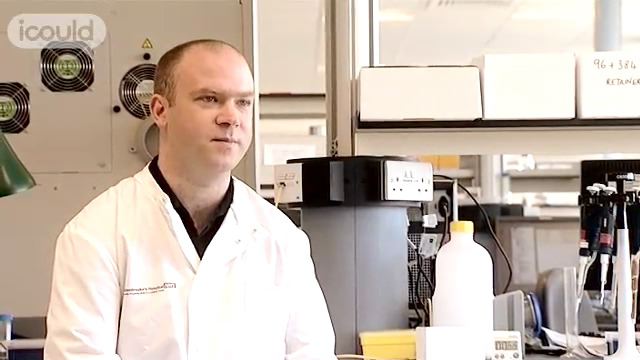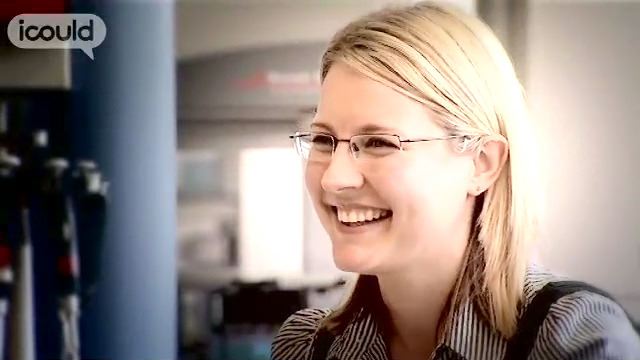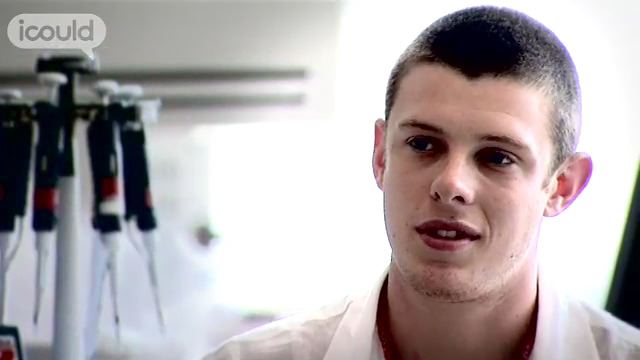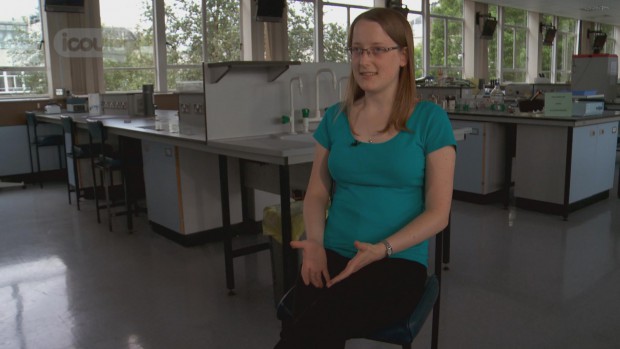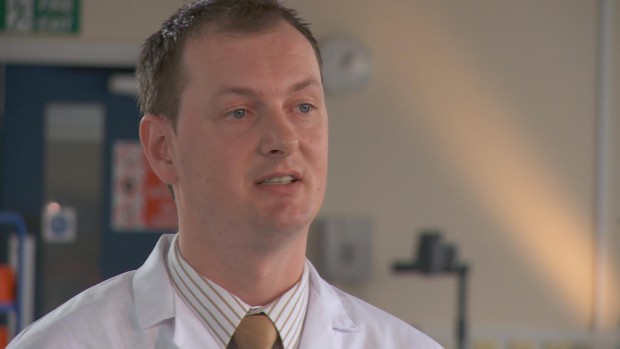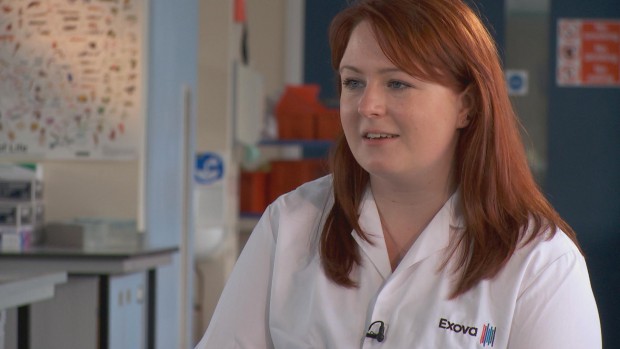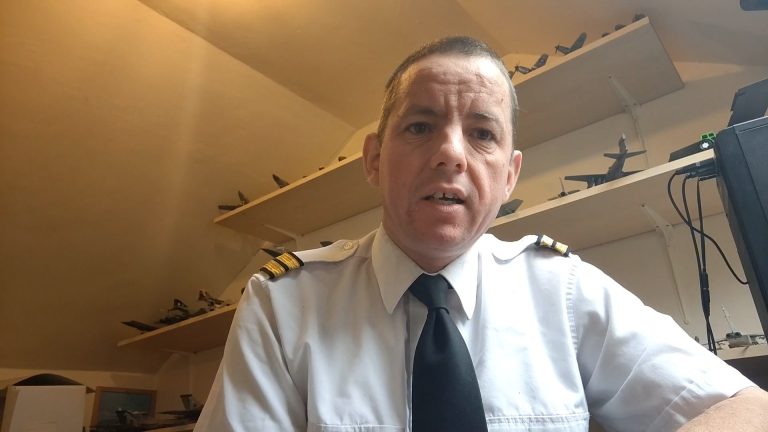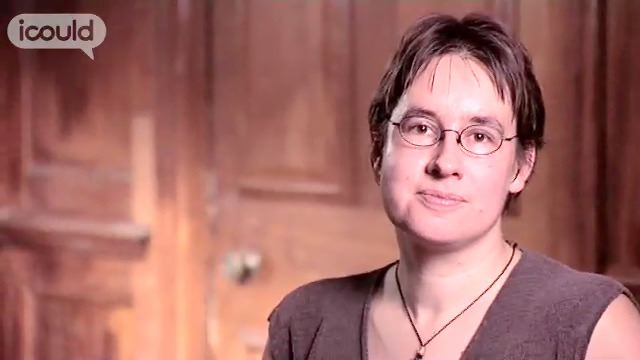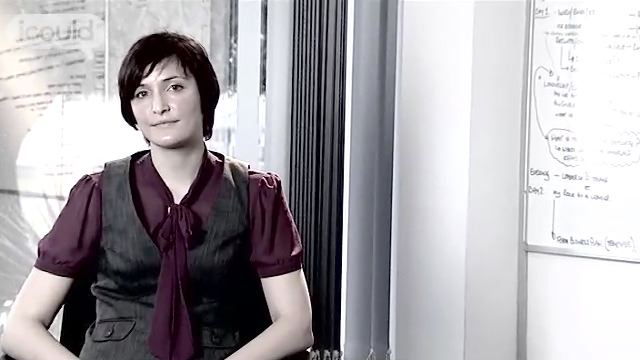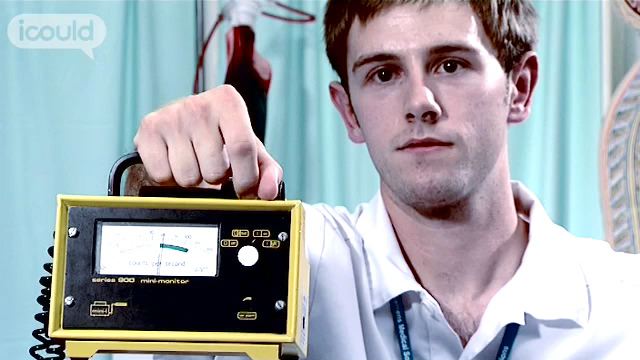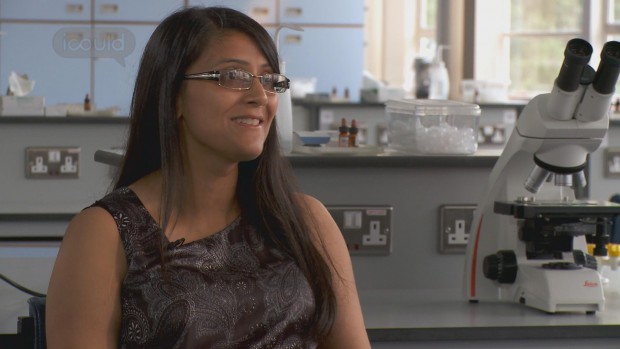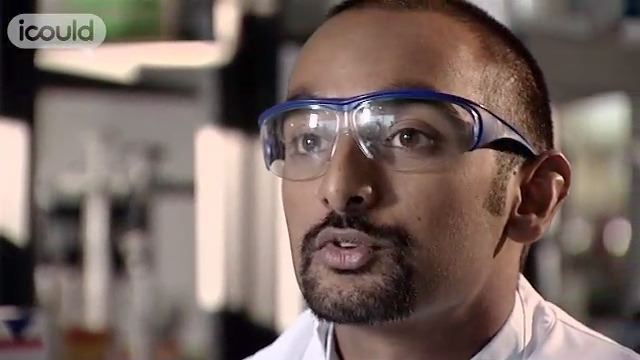Laboratory Technician
University of Birmingham
My name is Sophie H and I’m a Laboratory Technician for the school of Biosciences, University of Birmingham. I set up the student practicals with a team of technicians we set up equipment and chemicals, reagents cultures as well. We have a teaching timetable and this tells us what practical’s we need to set up and when. We have to work as a team. It has its moment of being difficult and also its moments of being easy as all jobs do. The best part of the job is the team you work with, the banter gets you through the hard parts and you can enjoy the easy parts. A bad day would be when we have four practical’s starting at exactly the same time and everybody is running around trying to get everything done and you’ve got 500 students in the way.
I was a student at the University and I worked on a temporary contract through my contacts here and from there I managed to get a permanent role here. I was a human biologist here it’s what I did for three years and got my BSC from the University. I was completely clueless as to what I was going to do with my degree or even forgetting my degree and moving forward from it. At the moment it’s just a job but there is progression within the job. So I started here as a laboratory technician and within a year Id moved up to a higher position, there is progression upwards within the ranks but I don’t have to do formal courses to progress. It was always the plan to go to University but I didn’t know what course until I was in my final year at school, then I decided and moved on from that. It was just what I enjoyed doing, I didn’t have a plan I just thought I like this subject I’m going to do it. I did biology, psychology, sociology and critical thinking.
My mum’s a teacher; my dad doesn’t come in to it. It’s a well educated family but there’s not pressure to go to university, its do what you want to do and what makes you happy. I think it’s definitely helped with my career progression so far, as I say I’ve moved from one job to another within the space of a year I don’t think I’d have been able to do that without my degree. I was unemployed for a while after I graduated with the current climate it’s not unusual. I applied for anything and everything and I didn’t think I had much chance at a role in teaching but as I say through my contacts here I’ve been in the labs before and the managers knew my name. When they were very short staffed I was brought on as a temporary member of staff and progressed from there. I wouldn’t be where I am today if I didn’t have that initial temporary work and getting in
I’ve found with my degree they value my practical experiences working more so that the experiences I had during my degree. At the moment I’m in a University setting, students always wants to go to University it’s a good place to work, it’s a relatively secure job as well and being a University they train people up so they will invest in their employees and I’m looking to do that really. If you are confident, your managers have confidence in you. If you’re not confident they worry that you’re going to go wrong and you’re going to need more help. So you have to have that confidence but you also have to know when to take a step back and say I need more help here.
I was here for three months as a temp and it wasn’t until I had reached the end of that, when I had worked a full teaching semester that I felt confident and comfortable in what I was doing. If you’ve got a scientific background I’d say go for the technician role first, because you get a good understanding of how to run a laboratory from the bottom up, you know exactly what to do. So when you’re maybe in a higher position of research etc you know what needs to be done. At the moment I’m a term time only contract which means I work 30 weeks out of the year. I’ve looked into research contracts and maybe working over the summer in a research lab also as a technician just to build my experiences. There’s people that work here that only came here to work as a stop gap and they’re here 40 years on. I’ve got to where I’ve got through stumbling into this role but I wouldn’t change it.
Sophie enjoyed science at school and decided to pursue biology at both A-level and for her degree. She studied at the University of Birmingham and whilst study she worked on a temporary basis as an assistant in the laboratories. On completing her degree an opening came up at the university as a laboratory technician and she feels that her temporary work helped her get the job. She feels that the technician role is a great starting point for anyone with an interest in science.
More information about Laboratory technicians
The UK average salary is £29,813
There are 37.5 hours in the average working week
The UK workforce is 47% female and 53% male
Future employment
- Sets up and assists with the construction and the development of scientific apparatus for experimental, demonstration or other purposes
- Prepares organic and inorganic material for examination and stains and fixes slides for microscope work
- Operates and services specialised scientific equipment, undertakes prescribed measurements and analyses and ensures that sterile conditions necessary for some equipment are maintained
- Records and collates data obtained from experimental work and documents all work carried out
- Maintains and rotates stock and supplies
- Disposes of chemical and biological waste safely
- Keeps up to date with new technical developments
